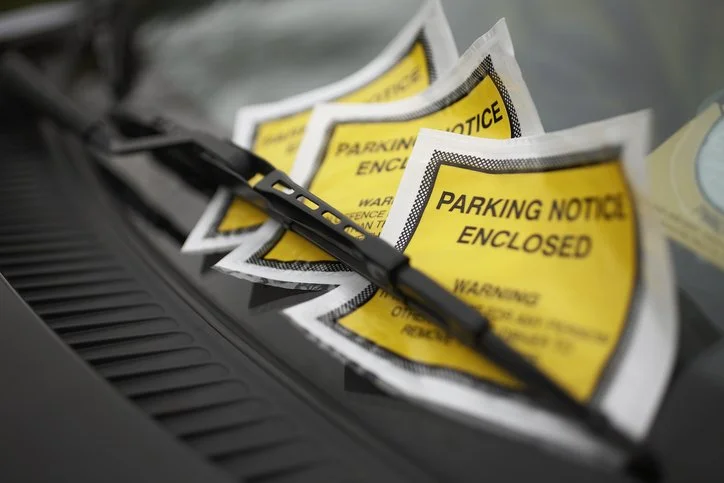THE FINER POINTS OF FINING CONDOMINIUM OWNERS
Condo association rules provide a behavioral road map for owners, explaining what they are allowed and not allowed to do. But creating effective rules is only half the challenge for boards; enforcing the rules is the other arguably more challenging half of this equation.
When it comes to enforcement, boards don’t have many tools. They can’t “vote owners off the island,” they can’t arrest owners and they can’t evict owners from units they own. Boards can file suit against non-compliant owners, but litigation should usually be a last resort, reserved for behaviors that could damage property or threaten the health or safety of residents.
The board’s primary tool for enforcing association rules is the power to fine owners who violate them. Most condominium documents give boards that authority, but the Massachusetts condominium statute specifically authorizes fines even if the association’s governing documents do not. The statute says fines must be “reasonable,” a vague standard that boards have considerable room to define.
THE GOLDILOCKS RULE
No single formula will apply to all communities, but boards should remember that the primary purpose of a fine is to encourage compliance; it is not to punish owners and it is certainly not to generate revenue for the association.
We advise our clients to follow the ‘Goldilocks” rule: Fines should be neither too high nor too low. If fines are too low, owners may view them as a price they are willing to pay to violate rules they don’t like. But if fines are too high, owners and the courts (if fines are challenged) may perceive them as excessive, unreasonable, or unfair.
Boards should adopt and publish a fine “schedule” detailing the amount of the fines and the procedures for imposing them. If fines are challenged, you don’t want to tell a court that the board “makes them up.” You want to point to the written policy on which the board relies.
Some boards impose a flat fee for all violations; others impose different fees for different violations, with higher fees applying to more serious infractions. The fines should be both reasonable (a statutory requirement in Massachusetts) and reasonably related to the infraction. A $50 per day fine may be reasonable for parking illegally, but a much larger fine would be justified for violations that could cause serious damage – adding an illegal bedroom that could stress the community’s septic system, for example.
CONSISTENCY AND DISCRETION
Boards should enforce association rules consistently and even-handedly, and they should impose fines the same way.
If you fine one owner for violating a rule, you should impose the same fine on other owners who violate the same rule. But while consistency is important, boards have considerable discretion to recognize different or extenuating circumstances. The board could – and arguably should – waive the fine for failing to stow the trash cans as required for an owner who has a broken leg. Similarly, a lower fine might be justified for an owner violating a rule for the first time than for an owner who has violated it repeatedly. The best policies combine the consistency needed to ensure fairness with the flexibility required to respond to extenuating circumstances and address special needs.
Boards have broad discretion in enforcing association rules and should exercise it. But they should also recognize that their discretion is not unlimited. Enforcement doesn’t have to be rigid, but it should be reasonably consistent. Remember: The owner you fine will be the first to take pictures of other owners who aren’t fined for the same violation. If you waive or reduce a fine, you must have an objective, defensible reason for doing so.
Common sense and fairness should be your guides. The more similar the violations (and the circumstances surrounding them), the stronger the argument for treating them the same way. If enforcement is inconsistent, owner compliance may be as well. If one owner isn’t fined for violating a rule, other owners may conclude, rationally, that they can get away with violating it as well. Inconsistency also heightens the risk of legal challenges from owners who may claim the fines are arbitrary or discriminatory. With the prospect of potential legal challenges in mind, boards should carefully document any waiver decisions to strengthen their legal defense should one become necessary.
THE ENFORCEMENT PROCESS
Enforcement in a condominium community is complicated by the fact that the owners who violate association rules are also friends and neighbors of the board members responsible for enforcing them.
This is not a justification for lax or inconsistent enforcement, but it is a reminder that the enforcement process does not have to be heavy-handed. Unless the board is dealing with a recurrent violation, the first step, in most cases, should be a polite notice that the owner has violated a rule and a reminder that a fine will be imposed if the violation continues.
Most owners will respond to this notice. If not, the board can send a second, more strongly worded letter notifying the owner of the violation and of the board’s authority to impose a fine for it. If that notice is ignored, the board should ask the association’s attorney to send a formal demand letter, stating that a fine of a specified amount is being imposed and that the owner will be responsible for paying the association’s legal costs as well. Owners do not typically ignore warnings conveyed by an attorney.
VIOLATION ‘HEARINGS’
Some condominium statutes require boards to hold hearings, or offer to hold them, before imposing fines or other penalties. Rhode Island has such a requirement, Massachusetts does not.
But it is reasonable, and a good practice, to include in a violation notice an invitation for owners to contact the board if they have any questions about a fine or want to provide information the board should consider.
Board members understandably don’t want to discuss fines with owners and as a practical matter, most owners aren’t particularly interested in these discussions either. Because there is usually no question about whether a violation has occurred, owners typically pay their fines without questioning them.
If owners refuse to pay, the association can pursue a collection action in court. But this process is costly and (unless an ongoing violation threatens the community or its residents) usually unnecessary. As long as owners are paying their common area fees, we advise association clients to simply list the fine and related legal costs on the owner’s account where it becomes an automatic lien, to which accumulated late fees can be added. The board can afford to be patient, knowing that owners will have to clear the lien before they can sell their unit or refinance their mortgage.
Condominium Association fines should fair, reasonable and consistent with condominium rules and policies. Questions and concerns regarding the fining process and implementing fine policies, contact Attorney Richard Brooks.




